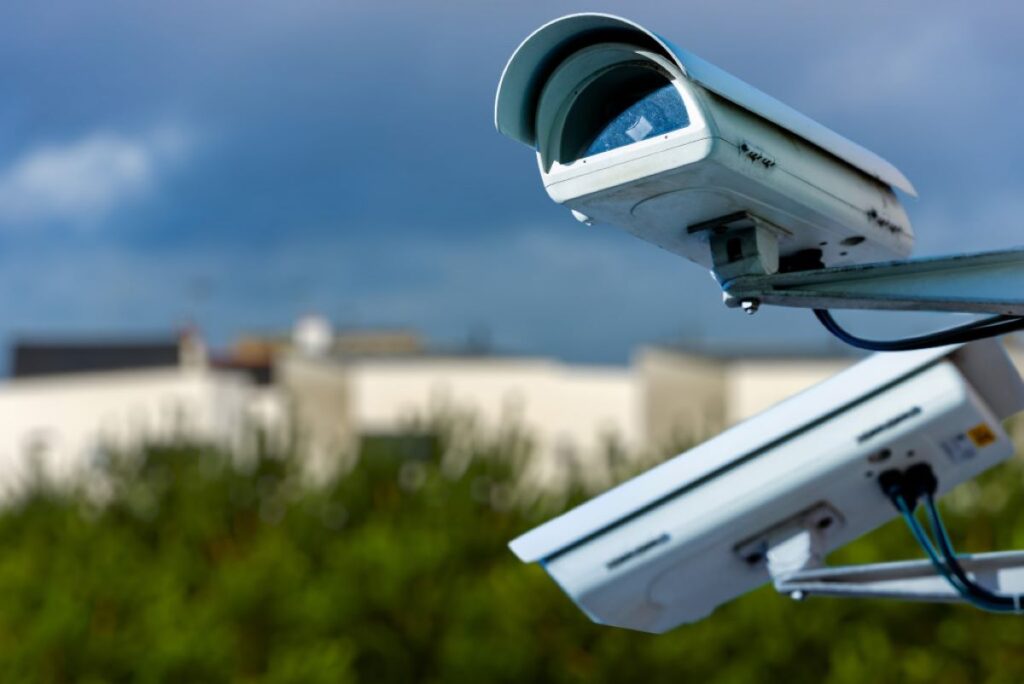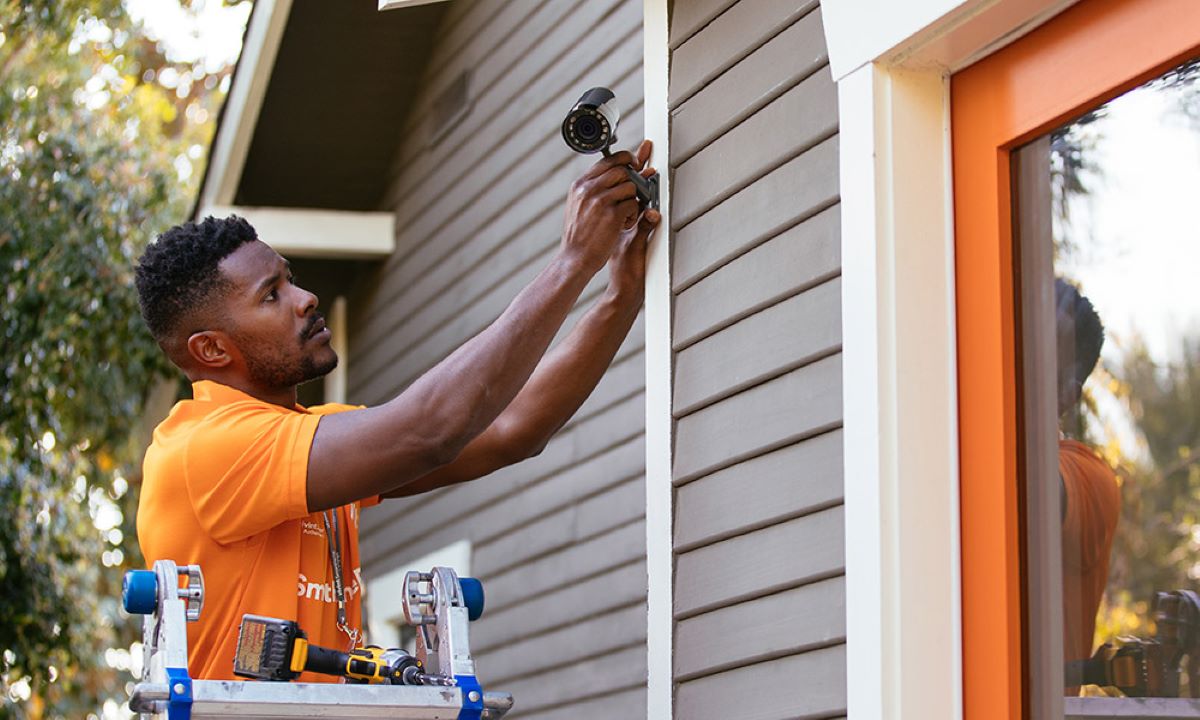In an ever-changing world, ensuring the safety of one’s home and loved ones has become paramount. As crime rates fluctuate and new threats emerge, the demand for effective residential security systems has surged. This article delves into the various types of security systems available, their benefits, and how they can safeguard your family and property.
Understanding Residential Security Systems
Residential security systems are designed to deter crime and protect homes from intrusions. They come in various forms, ranging from simple locks to advanced technology-driven systems. Understanding the components and functionality of these systems is crucial for making informed decisions about home security.
Types of Security Systems
There are several types of residential security systems available, each with its unique features and benefits. The most common types include:
- Alarm Systems: These systems typically consist of sensors placed on doors and windows that trigger an alarm when breached. They can be monitored by a professional security company or be self-monitored via a smartphone app.
- CCTV Cameras: Closed-circuit television cameras provide real-time surveillance of the property. They can deter potential intruders and provide valuable evidence in the event of a crime.
- Smart Home Security: Integrating various devices such as smart locks, doorbell cameras, and motion sensors, smart home security systems allow homeowners to monitor and control their security remotely.
Components of a Security System
Each security system comprises several key components that work together to provide comprehensive protection. These components include:
- Control Panel: The control panel is the brain of the security system, allowing users to arm or disarm the system and manage various sensors and devices.
- Sensors: These devices detect movement or entry and can be installed on doors, windows, and in other vulnerable areas of the home.
- Alarm: The alarm serves as a deterrent, alerting homeowners and neighbours of a potential breach.
In addition to these primary components, many modern security systems also feature additional elements that enhance their effectiveness. For instance, motion detectors can be strategically placed in gardens or driveways to monitor movement in areas that are not directly visible from the home. Furthermore, some systems offer environmental sensors that can detect smoke, carbon monoxide, or flooding, providing an extra layer of safety against potential hazards. This integration of various technologies not only enhances security but also contributes to the overall safety and well-being of the household.
Moreover, the rise of smart technology has transformed the landscape of residential security, making it more accessible and user-friendly. Homeowners can now receive instant alerts on their mobile devices, allowing them to respond quickly to any suspicious activity. Additionally, many systems can be programmed to work in conjunction with other smart home devices, such as lighting systems that can be set to turn on automatically when an intruder is detected. This level of integration not only provides peace of mind but also allows homeowners to maintain control over their security measures from virtually anywhere in the world.
The Benefits of Residential Security Systems
Investing in a residential security system offers numerous benefits that extend beyond mere protection against theft. These systems can enhance the overall safety and peace of mind for homeowners and their families.
Deterrence of Crime
One of the most significant advantages of having a security system in place is its ability to deter crime. Studies have shown that homes equipped with visible security systems are less likely to be targeted by burglars. The mere presence of cameras, alarms, and signs can discourage potential intruders from attempting to break in.
Emergency Response
In the event of a break-in or emergency, a well-designed security system can facilitate a swift response. Many alarm systems are connected to monitoring centres that can alert local authorities immediately. This rapid response can be crucial in preventing further harm or loss, providing an added layer of security for families.
Insurance Benefits
Many insurance companies offer discounts on homeowners’ insurance premiums for properties with security systems. By investing in a security system, homeowners can not only protect their property but also potentially save money on insurance costs. This financial incentive can make the investment in security systems more appealing.
Choosing the Right Security System
With a plethora of options available, selecting the right security system can be a daunting task. However, understanding your specific needs and preferences can simplify the decision-making process.

Assessing Your Security Needs
Every home is unique, and so are its security requirements. Factors such as the size of the property, the neighbourhood’s crime rate, and the presence of valuable items should be considered when assessing security needs. Conducting a thorough risk assessment can help identify vulnerabilities and guide the selection of appropriate security measures.
Researching Security Providers
Once the security needs have been identified, it’s essential to research various security providers. Look for reputable companies with positive customer reviews and a proven track record in the industry. Comparing different providers can help homeowners find a system that fits their budget and requirements.
Installation and Maintenance
Proper installation is crucial for the effectiveness of any security system. Some systems may require professional installation, while others can be set up by the homeowner. Additionally, regular maintenance is essential to ensure that the system functions correctly. Homeowners should be aware of any maintenance requirements and factor them into their decision-making process.
Technological Advancements in Security Systems
Technology has revolutionised the security industry, leading to the development of advanced systems that offer enhanced features and convenience. Understanding these advancements can help homeowners make informed choices about their security solutions.
Smart Technology Integration
Smart home technology has made significant strides in recent years, allowing homeowners to integrate security systems with other smart devices. Features such as remote monitoring, smartphone alerts, and automated responses can enhance the overall security experience. For instance, smart locks can be controlled remotely, enabling homeowners to grant access to visitors without being physically present.
AI and Machine Learning
Artificial intelligence (AI) and machine learning are increasingly being utilised in security systems. These technologies can analyse patterns and behaviours, allowing for more accurate threat detection. For example, AI-powered cameras can distinguish between familiar faces and potential intruders, providing an additional layer of security.
Home Automation and Security
Home automation systems can work in tandem with security measures to create a comprehensive safety net. For instance, motion sensors can trigger lights to turn on when someone approaches the property, deterring potential intruders. Additionally, automated routines can simulate occupancy, making it appear as though someone is home even when the house is empty.
Common Misconceptions About Security Systems
Despite the clear benefits of residential security systems, several misconceptions can hinder homeowners from investing in these essential protections. Addressing these myths can help clarify the importance of security systems.
“Security Systems Are Too Expensive”
While some security systems can be costly, there are options available to suit various budgets. Many providers offer flexible payment plans, and the long-term savings on insurance and potential losses from theft can outweigh the initial investment. Additionally, DIY systems are often more affordable and can still provide adequate protection.
“Security Systems Are Complicated to Use”
Modern security systems have become increasingly user-friendly, with intuitive interfaces and smartphone applications that simplify operation. Many systems offer tutorials and customer support to assist users in navigating their features. Homeowners can feel confident that they can manage their security systems effectively.
“Only Wealthy Homes Need Security Systems”
Crime can affect any neighbourhood, regardless of socioeconomic status. In fact, homes in suburban areas may be more vulnerable to break-ins due to perceived lower security measures. Investing in a security system is a proactive step that can benefit families of all backgrounds, providing peace of mind and protection for loved ones.

Conclusion
In conclusion, residential security systems play a vital role in protecting families and property. With various options available, homeowners can choose systems that suit their specific needs and budget. The benefits of crime deterrence, emergency response, and potential insurance savings make these systems a worthwhile investment.
As technology continues to advance, integrating smart features and automation into security systems will only enhance their effectiveness. By dispelling common misconceptions and understanding the importance of security, homeowners can make informed decisions that contribute to the safety and well-being of their families.
Ultimately, the peace of mind that comes with knowing your home is secure is invaluable. Investing in a reliable residential security system is a crucial step in safeguarding your family and property against potential threats.
Related : Home Security System Installation: What to Expect from Professionals

